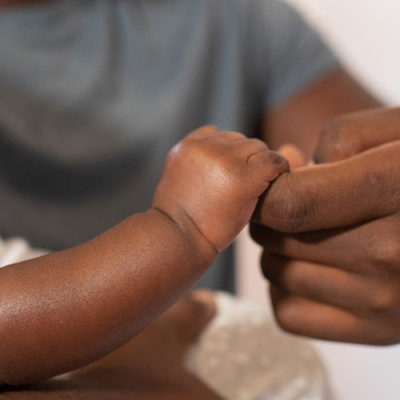Senior Lecturer in Psychological Therapies
Faculty of Health, Sport and Behavioural Sciences

Postgraduate Diploma in Systemic Family Practice
Key Facts
-
Level
PostgraduatePG PGDip
-
Duration
10 months Part Time
-
Starting
January
JAN
-
Waterside
Updated 12/08/2025
Updated 12/08/2025
Overview
The aims of this programme are aligned to those of NHS England and the UK Government’s Improving Access to Psychology Therapies (IAPT) for Children and Young People project (CYP IAPT). This curriculum has been developed as part of the Child and Young People Improving Access to Psychological Therapies programme (CYP IAPT). The PG Dip Systemic Family Practice curriculum complements other CYP IAPT curricula in specialist psychological therapies (CBT, run by our partner Institution in Derby, and the PG Cert Enhanced Evidence Based Interventions, run at the University of Northampton).
The next intake is February 2025.
Should you require more information you can contact the IAPT team.
Highlights
- Association for Family Therapy Accredited. The Curriculum meets the highest standards, set down in the AFT ‘Blue Book’
- Programme focuses on taking skills to an advanced level and encouraging students to develop greater expertise in chosen areas
- The PG Dip Systemic Family Practice curriculum complements other CYP IAPT curricula in specialist psychological therapies
Entry Requirements
- You can not be considered for this course if you are currently occupying a recruit to train position or if you have not waited two years before applying for another recruit to train vacancy.
- You will need to have a first or second class honours degree from a UK university or international equivalent.
- You should normally have access to a suitable context in which they work with children and young people, and to an appropriate supervisor.
- You should hold a training in a mental health-related profession (e.g. psychology, nursing, social work, occupational therapy, speech and language therapy, special needs teaching, psychiatry, other psychotherapy, counselling).
- Two years’ experience of working within a professional setting concerned with the mental health of children and young people.
- Some experience of working with families.
Students who have not completed a first degree, but have a relevant qualification (e.g A Diploma in Nursing) may register for the PG Dip. In the first instance they will be registered as ‘associate students’ and will transfer to full Diploma status once they have passed their first level 7 module.
Given the specialist and bespoke nature of this diploma, prospective students will initially be identified through the joint action of the University of Northampton course leader, and participating NHS services and linked organisations, who will identify appropriate participants from within their workforces or those that make an application through other means. Additional programme places for non-CYP-IAPT related applicants may be considered subject to programme places being available. Applicants are selected for offer or invited to interview on the basis of information provided in the application form, the personal statement and academic reference. Students who have previously completed an appropriate AFT accredited intermediate course in systemic practice with families will, if they wish, be granted APEL for the “Basic Skills In Systemic Family Practice module”, but will usually be required to take the specialist modules (Either Eating Disorders, or Depression and Self Harm) and core CYP IAPT Curriculum (Core Competencies for Children and Young People’s IAPT, and PSYM063, Core Competencies for Working in Child and Adolescent Mental Health).
With your application you need to complete and submit an Employer Declaration form which has been signed by your manager with your online application. You can find the Employer Declaration form on the additional documents page.
For further information about applying to postgraduate study, please visit the how to apply for postgraduate study page.
During the period of training students will be required to hold a caseload, to be receiving regular clinical supervision, to be able to video record their sessions with children and families, and to use the CYP IAPT routine outcome measures.
Suitability for the programme will be ascertained by employer nomination, application form and personal statement, and admissions interview (which may include a young people’s representative, and an employer representative, as well as a representative of the HEI).
Please note applications for this course can only be made following successful appointment in the CAMHS workforce as a trainee Systemic Family Therapist . For further information and to register your interest please contact the programme leader Dr Jenny Tozer.
All International and EU students applying for a course with us must meet the following minimum English language requirements:
- Minimum standard – IELTS 6.5 overall (or equivalent)
with a score no lower than 6.0 for writing and no remaining band/component below 5.5 for study at postgraduate level.
For information regarding English language requirements at the University, please see our IELTS page.
Course Content
It is likely that students on this PG Dip will come from a broad range of backgrounds, and will have varied skills when they begin the programme. However, they will have shared skills as CAMHS practitioners with at least two years of practice experience. The modules are structured to support students in developing their existing skills to enable postgraduate success. The focus is on taking skills to an advanced level and encouraging students to develop greater expertise in chosen areas.
The transferable skills which are particularly emphasised on this course include the ability to critically evaluate, synthesise and apply research and theory in a practical organisational context. Students are encouraged to examine the tensions between theory and practice and to develop flexibility and creativity in applying research and theory to real-world contexts. Students are encouraged to work in action learning sets and in reflexive and problem focused group work, building strong skills in group and team work, equipping students to facilitate group projects in a variety of employment settings. A range of assessments that test the acquisition of particular skills at different stages are employed throughout the diploma. These include presentations, video recordings, case studies, reflexive reports and a plan for a service evaluation.
The use of Personal Tutors processes reinforces key skills development throughout the programme. For students who are remotely located, arrangements will be made for phone or skype based contact with the PT. Your personal tutor will either be the course lead or an associate lecturer and both will facilitate separate skills groups on regular occasions.
Module information can be found on the Award Map.
Please note the modules shown here relate to the academic year 25/26. The modules relating to the academic year 26/27 will be available from June 2026.
Fees and Funding
Funded by the NHS and Health Education England (HEE).
Staff
Careers and Employability
Students who pass this course would be eligible to train as qualified family therapists and would need to only complete a further two years of part-time study to acquire a Diploma in Family Therapy from a training institutions in family therapy.





